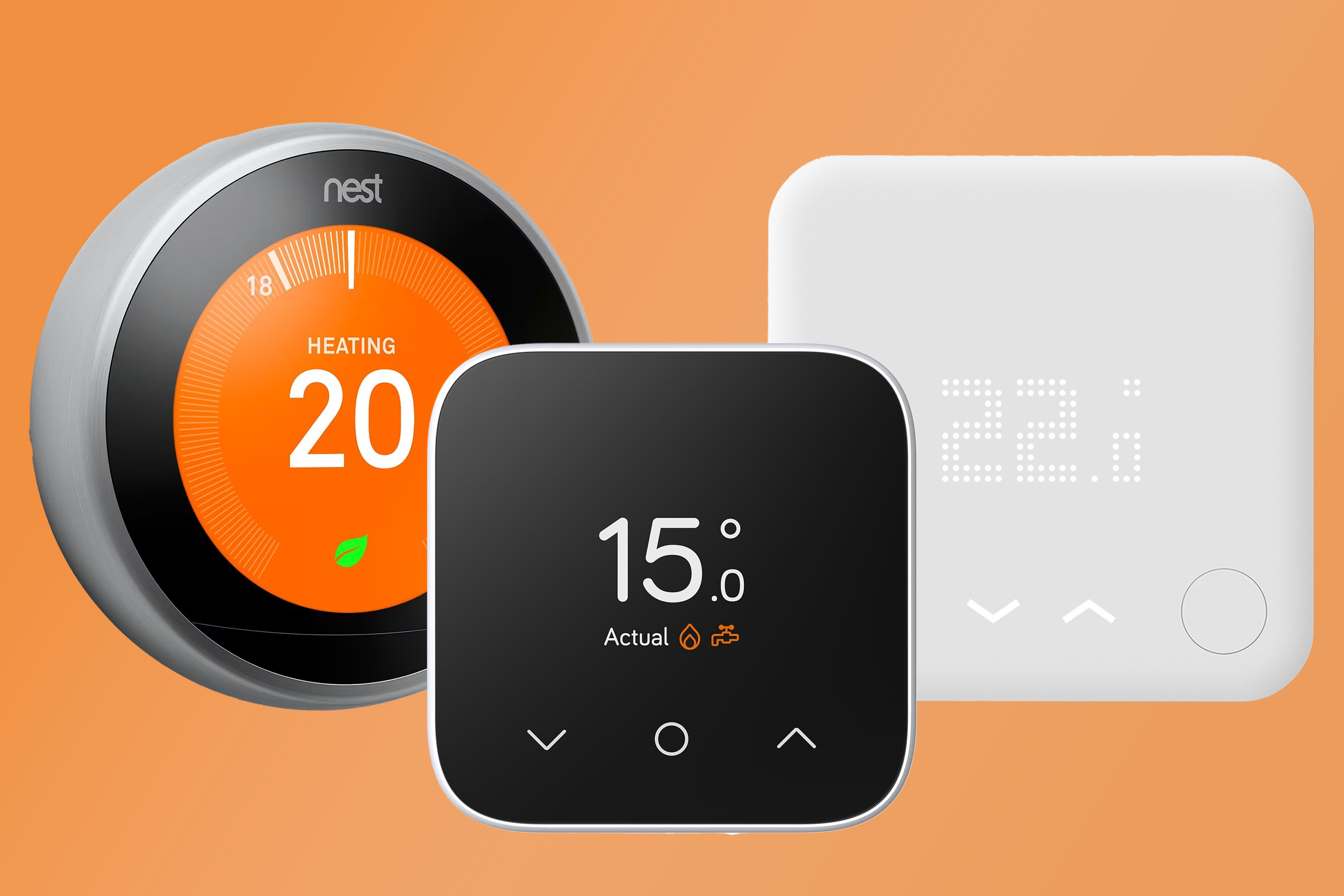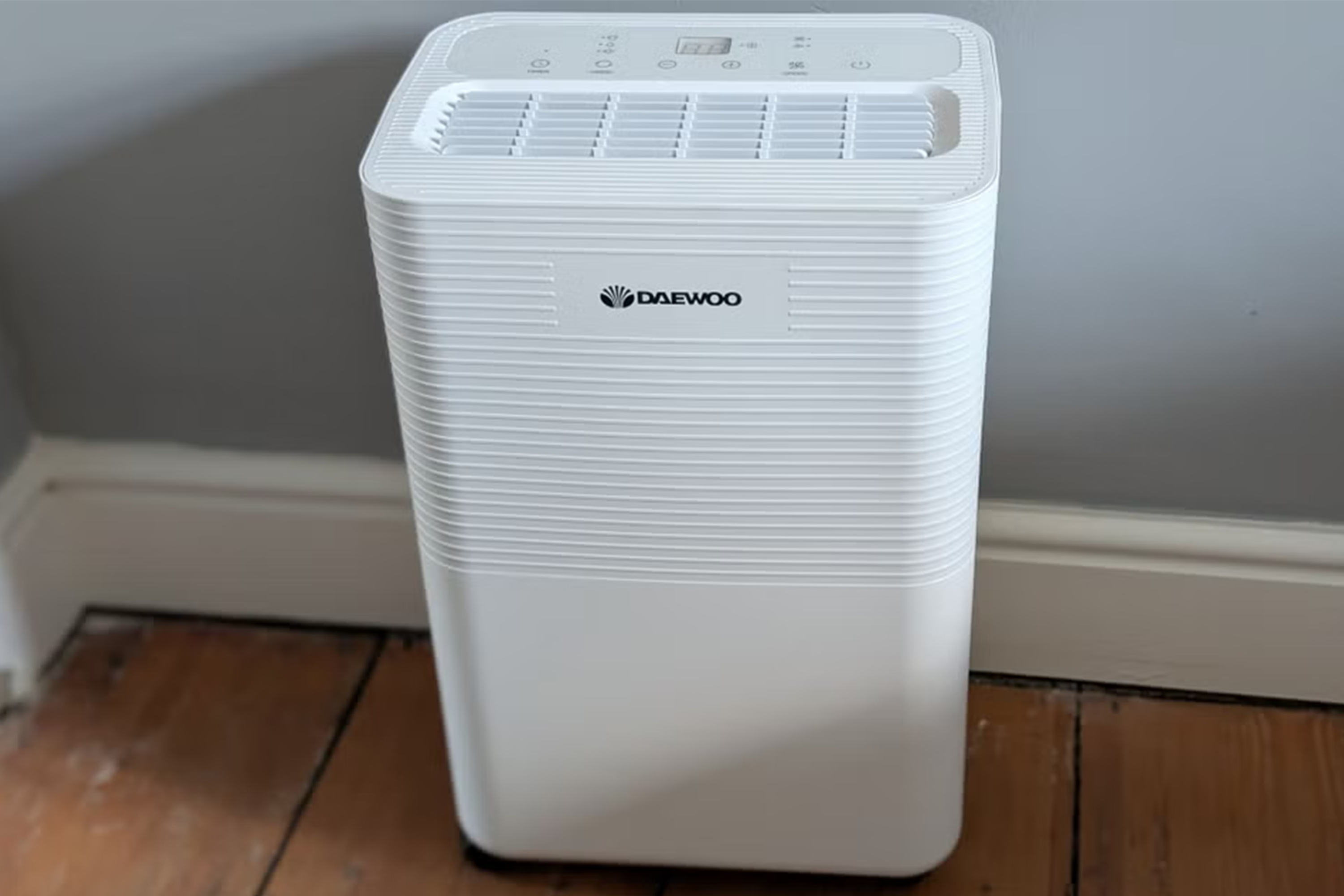The Independent's journalism is supported by our readers. When you purchase through links on our site, we may earn commission. Why trust us?
Best smart thermostats to help save you money this year, tested by a tech critic
Keep your electricity bill in check with these handy devices from Google, Nest and more

The best smart thermostats are a great way of making sure you don’t waste energy – something especially important when energy costs are high. And with winter temperatures dropping, now is an ideal time to invest in one. It could help you to make your usage more efficient, and keep your electric and gas bills in check.
When it’s cold, with a smart thermostat, you can turn up the temperature without leaving the couch, just by tapping your smartphone. Even better, you can control a smart thermostat from wherever you are, not just at home.
If you’re going away, there’s already plenty to remember without worrying about whether you turned the heating down. With a smart thermostat, even if you leave the house with the radiators on full blast, you can tweak the temperature remotely later on, whether that’s from the airport lounge or once you’re already on the plane.
Some thermostats can even spot when you’re away, and do this automatically. Similarly, you can anticipate your return by increasing the home temperature in the hours before you get back, so it’s toasty when you arrive. You can also set up a schedule for the radiators and hot water to come on.
Some smart thermostats can even talk to other smart home devices, like a smoke alarm detector which can spot when, heaven forbid, there’s a fire and turn the boiler off instantly, to stop it making a bad situation worse.
The best smart thermostats for 2025 are:
- Best smart thermostat overall – Google Nest learning thermostat: £299.00 Amazon.co.uk
- Best entry-level smart thermostat – Hive mini: £139.00, Amazon.co.uk
- Best smart thermostat for control in multiple areas – Honeywell evohome bundle: £294.52, Amazon.co.uk
How I tested
I checked out how simple these thermostats were to install, set up and use. Keep on reading to discover how I got on, and what my full testing criteria involved.
1Google Nest learning thermostat

- Best Smart thermostat overall
- Dimensions 84mm x 84mm x 30mm
- Sensors Temperature sensors, humidity sensor, proximity sensor
- Why we love it
- Detects when you’re out of the house and turns down the heating automatically
- Learns your heating habits to save you energy
- Easy to set up and control
- A dream to use
Google’s Nest thermostat looks great and performs brilliantly. Walk towards it and the screen turns on as you approach, which is an oddly intimate experience. It’s not a touchscreen, but you spin the stainless-steel outer ring to turn the temperature up or down (which is also satisfying). When you interact with it, it learns your favourite temperatures and when you want them, creating a weekly program. You can create your own schedule as well. It will recognise when you’re home or away, based on where your smartphone is, so it can turn the heat down when you go away. It can also control your hot water tank, again knowing to not heat water when you’re not there.
Google recommends professional installation, which I think is best for all but the keenest DIYers with a stout constitution. Once it’s in place, it’s a dream to use. It also confers with other Nest devices like smoke detectors, so it will cut out if it learns there’s a fire.
2Honeywell evohome bundle

- Best Smart thermostat for control in multiple areas
- Dimensions 139mm x 100mm x 20mm
- Sensors Temperature sensors
- Why we love it
- Includes wireless radiator valves
- Comprehensive system
- Take note
- Pricey
There are different versions of this system so you can choose what you need. The strength of the Honeywell is that each individual area can be controlled separately from the colour touchscreen display unit or the smartphone app. The controls are sophisticated and allow you to schedule the heating as you need, and for up to 12 separate heating zones.
3Tado smart thermostat

- Best Smart thermostat for versatility
- Dimensions 104mm x 104mm x 20mm
- Sensors Temperature sensors, humidity sensor, ambient light sensor
- Why we love it
- Simple to use with HomeKit support
- Connects to radiator valves for better control
- Fast and responsive
- Take note
- Setting schedules is fiddly
The Tado is highly affordable but doesn’t stint on clever features, such as learning your behaviour and adjusting its heating schedule accordingly. It also tracks your presence and absence through your smartphone. Additionally, if you choose the brand’s smart radiator valves, sold separately, it can control the temperature in different zones. The simple but attractive design means most of the controls are accessed through the smartphone app. Unlike some devices, it’s compatible with Apple HomeKit. Professional installation is available for £120, and there’s an optional Auto Assist subscription for some services such as energy costs and automated open window detection, for £3.99 a month.
4Hive mini

- Best Value smart thermostat
- Dimensions 84mm x 83mm x 22mm
- Sensors Temperature sensors, humidity sensor, proximity sensor
- Why we love it
- Snazzy design
- Can be expanded to work with other smart home products
- Simple to use
- Take note
- Professional installation increases the price
- Not many controls through the thermostat itself
The Hive mini is exceptional value and has a highly attractive, mirrored touchscreen design. Like the Tado, you mostly control it through your smartphone rather than on the device itself. It doesn’t have the learning smarts of the Nest, but it offers portability as it’s powered by four AAA batteries. If you are upgrading from the original hive, you don’t need to buy the receiver, it works with the one from the original. Like the Tado, there are optional smart radiator valves available, not to mention window and door sensors, smart lights and more. There’s also a £3.99 per month subscription with tips to save energy and a carbon calculator.
5Nest thermostat E

- Best Smart thermostat for simplicity
- Dimensions 390mm x 192mm x 215mm
- Sensors Temperature sensors, humidity sensor, proximity sensor
- Why we love it
- Simple to use
- Good value
- Cute design
- Take note
- No learning capabilities
If you like the look of the Nest above but want something more affordable, this is what you’re looking for. It has a familiar round design but with a frosted display made of plastic rather than metal and glass. The thermostat E is capable and useful but lacks the features of the pricier model – though there are some learning capabilities here, where it takes note of your routines in the first few days, for instance. There’s a built-in stand which means you can put it anywhere, and Nest says this model is easier for DIY installation than its more expensive sibling. It works with central heating systems but isn’t as compatible as the bigger thermostat, so check compatibility before you buy.
6Netatmo smart thermostat

- Best Smart thermostat for design
- Dimensions 83mm x 83mm x 22mm
- Sensors Temperature sensors
- Why we love it
- Looks great
- Battery-powered
- Take note
- Lacks some advanced features
The Netatmo looks especially slick, thanks to the involvement of French industrial architect, Philippe Starck, in the design. It’s a white box with a coloured surround which comes in four colours – orange, green, blue and yellow. It’s fully compatible with Apple HomeKit, so responds when you talk to Siri, as well as working with Google Assistant and Amazon Alexa. The display is quite subtle: it’s black-and-white because it’s E-ink, like an ebook reader. There are limited controls on the thermostat itself – it’s mostly controlled by the smartphone app. Because it’s powered by three AAA batteries, you can place it anywhere or wall-mount it. Netatmo also makes smart radiator valves which you can add.
Your questions about smart thermostats answered
What is the best smart thermostat?
Smart thermostats mean you’re not constantly having to remember to turn the heating on, and you can control them from an app so it’s easy to turn the radiators on from the bus if you’re making your way home unexpectedly early. Nest’s learning thermostat remains the easiest and most effective, but if you want granular control of multiple rooms, Honeywell evohome is effective. The Tado smart thermostat V3+ is highly capable and good value.
What to look for in a smart thermostat
Setting them apart from other boiler controllers, smart thermostats have many cost/fuel-saving features. The best ones to look out for include hot water control, multi-room control, the ability to learn your routine, motion sensors, GPS tracking and weather-responsive functionality.
Is it worth getting a smart thermostat?
There are several factors to consider before installing a smart thermostat. If easy control is what you want, then going “smart” with your heating is probably for you. If you don’t already have a boiler controller, you can save money by opting for a smart thermostat by being able to control your heating remotely, see how much you’re using and create different heating zones.
Can you install a smart thermostat yourself?
Many models require professional installation, adding to your overall cost but there are smart thermostats on the market that can be installed by a competent DIYer.
Potential disadvantages to smart thermostats
Among the cons, you may have to pay higher upfront costs or become locked into a brand and its compatible products. The less tech savvy among us might struggle getting used to a smarter system, too.
What is the difference between a smart thermostat and a wifi thermostat?
Unlike smart thermostats, wifi models don’t have the ability to learn from your usage nor the means of programming to automatically change the temperature in your home at a certain time. Smart thermostats can help you save on your bills over time.
How I tested
For each smart thermostat, I assessed the same qualities. These included:
- Installation and setup: I tested how easy each thermostat was to install and get running, as well as how long it took me to get through the setup.
- Ease of use: I assessed how simple it was to operate day-to-day and navigate the interface. For example, if controlled through an app, how easy was this to download and use.
- Reliability and performance: I checked whether the thermostat accurately heated rooms to the desired temperature it said it would.
- Features: I looked at the number of extra features included, if any, and whether they were practical and actually useful.
Why you can trust IndyBest reviews
As The Independent’s technology critic, David Phelan has decades of experience assessing tech products of all kinds. From his review of the iPad Pro to the best wireless earbuds, David knows what he’s talking about. For all of his reviews, he tests the products thoroughly, and only recommends the ones he believes to be worth your money.
For extra cosiness without blasting the central heating, read our best electric heaters review











Bookmark popover
Removed from bookmarks